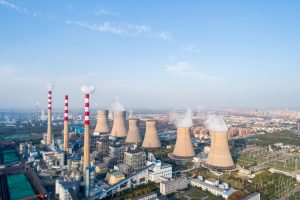Jesse Turland

Much of northeast China has been intermittently without power since Sunday as the country comes to grips with a litany of issues, ranging from depleted coal inventories to far-reaching consequences of its national energy policy. Traffic lights and medical clinics in Jilin and Liaoning provinces have been intermittently without power, according to residents’ posts online.
Although the problem is most acute in the frigid northeast, blackouts have been occurring in at least 17 provinces nationwide, including Guangdong, Zhejiang, Shandong, Anhui, and Jiangsu.
On Sunday evening, one Jilin utility company issued a notice that electricity cuts were expected to “occur frequently” until March 2022 and would likely be “irregular, unplanned and unannounced.” Average daily temperature lows in Jilin’s capital, Changchun, are 10.8°C (51°F) in September dropping to -19°C (-2°F) in January.
The glibly worded notice aroused panic among Jilin’s residents, many of whom took to social media to complain. It became a trending search term nationally and on Monday the outcry prompted the power company to apologize that its alert had been “improperly worded.”
Another viral post online featured a story from a Jilin resident describing carbon monoxide poisoning. During the blackout, the author’s family used a heater in a poorly ventilated house burning coal briquettes, and were hospitalized with carbon monoxide poisoning after the author’s mother – who had a pre-existing heart condition – experienced alarming symptoms of a sudden deterioration in her health. “Because of the power outages, our family of three almost died,” the Jilin resident wrote.
China has built wind and hydropower facilities, but the output of these renewables has been insufficient to meet recent demand. Coal is still the mainstay of power generation, but depleted supplies have raised prices to a 10-year high. The first target for energy rationing is industry, which accounts for 68 percent of China’s consumption, dwarfing the 15 percent made up by residential consumption. But even with the shuttering of industry, there is not enough left for residential dwellings.
Nine-tenths of China’s coal is sourced domestically from Shanxi, Shaanxi, and Inner Mongolia. Remaining deposits are buried deep underground, inaccessible through surface mining. But in June the increasing dangers of tunnel mining led regulators to close mines in Shanxi following deadly accidents, lowering output.
Imports make up the remaining 10 percent of the nation’s coal supply, but these sources have also been under pressure. Before Australia called in April 2020 for an independent inquiry into the origins of COVID-19, it supplied 68 percent of China’s coal imports. That plunged to zero as China imposed an unofficial embargo on Australian coal as part of their diplomatic standoff, refusing customs clearance.
Mongolia was seen as a desirable alternative source of coal, but health measures to contain COVID-19, including border restrictions, disrupted freight.
China has committed itself to reducing dependence on coal for winter heating as part of its overall aim of carbon neutrality by 2060. But progress toward this end has been fitful. The transition to natural gas in northern China was scuttled in November 2017 when a supply gap left thousands of people exposed to the bitter cold. The Ministry of Environmental Protection dispatched teams to give away electric heaters.
Amid the power shortages, the editor of the nationalist Global Times, Hu Xijin, found himself backpedalling from comments he had made earlier in the year decrying blackouts in Taiwan. “This shows very serious mismanagement,” Hu wrote on May 14, following power cuts that left millions of Taiwanese in the dark for a day.
That post went on: “It is laughable to imagine a developed province or megacity on the mainland suffering a blackout ‘for no reason’ every four years.”
Following this week’s supply issues on the mainland, Hu deleted that older post. The power cuts in the northeast, Hu wrote, were “regrettable” and he then ventured to criticize the official notification, stating: “It is certainly not enough to make a simple announcement.”
The government has been left scrambling for solutions. The official Economic Information Daily published an article on Wednesday featuring an interview with representatives of the National Development and Reform Commission, the country’s most powerful economic planning agency.
The officials assured readers that China would “increase coal imports in an orderly manner, try our best to increase domestic natural gas production, maintain the stability of pipeline gas imports in Central Asia, and ensure that coal-electric power units are fully distributed.”
No comments:
Post a Comment